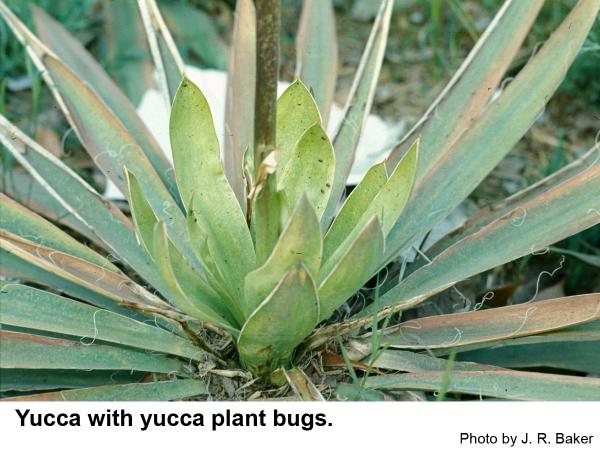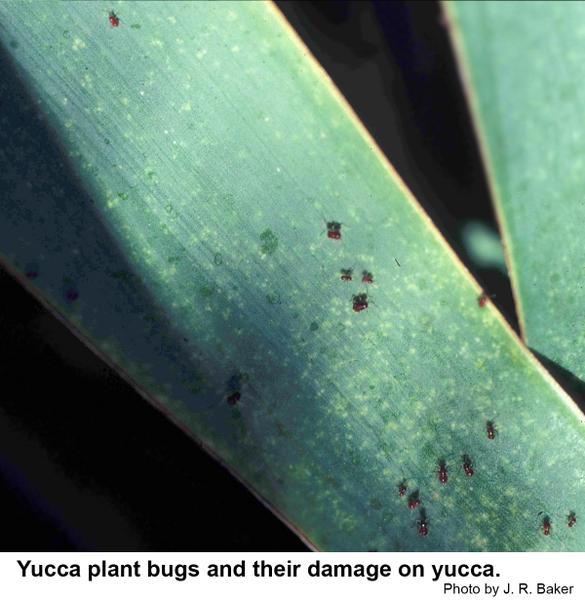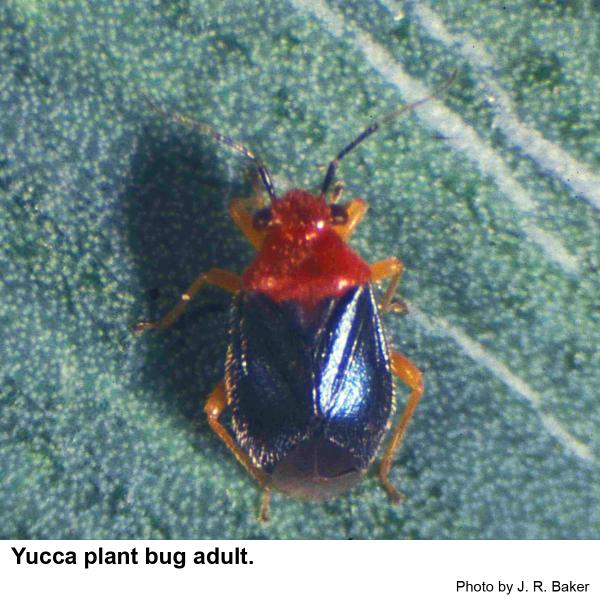Description and Biology
The yucca plant bug, Halticotoma valida, has a dark (navy blue to almost black) abdomen and wings with an orange thorax and head. Adults are about 1/8 inch long. Yucca plant bugs are skittish and shy. Females insert their eggs into the leaf and deposit a light colored material around the cap of the egg. The overwintering eggs hatch in late March and a second generation appears around the first of June. These mature in 3 to 4 weeks. Altogether, there are four generations per year in North Carolina. The nymphs are orange-brown and molt five times until they become adults. In some years nymphs are present until November and adults are present until late December.
Host Plants
Yucca plant bugs have been found feeding on five species of yucca and on Dasylirion, a yucca-like plant. Yucca plant bugs do about the same kind of damage to yucca as lace bugs do to azalea. They stipple the leaves and cause them to yellow and look ugly. They also leave unsightly black specks of excrement on the leaves.
Residential Recommendation
Yucca plant bugs are susceptible to pesticides. Sevin, Orthene or a pyrethroid should give adequate control. It may be necessary to treat again in a few weeks because these pesticides may not kill yucca plant bug eggs inside the leaf tissue.
References
- Yucca Plant Bug, Halticotoma valida: Authorship, Distribution, Host Plants, and Notes on Biology. Wheeler, A. G. 1976. Florida Entomologist 59 (1): 71-76.
- NC State Extension Plant Pathology Publications
- NC State Horticultural Science Publications
- North Carolina Agricultural Chemicals Manual
For assistance with a specific problem, contact your local N.C. Cooperative Extension center.
Publication date: Nov. 14, 2013
Revised: Oct. 24, 2019
Recommendations for the use of agricultural chemicals are included in this publication as a convenience to the reader. The use of brand names and any mention or listing of commercial products or services in this publication does not imply endorsement by NC State University or N.C. A&T State University nor discrimination against similar products or services not mentioned. Individuals who use agricultural chemicals are responsible for ensuring that the intended use complies with current regulations and conforms to the product label. Be sure to obtain current information about usage regulations and examine a current product label before applying any chemical. For assistance, contact your local N.C. Cooperative Extension county center.
N.C. Cooperative Extension prohibits discrimination and harassment regardless of age, color, disability, family and marital status, gender identity, national origin, political beliefs, race, religion, sex (including pregnancy), sexual orientation and veteran status.



